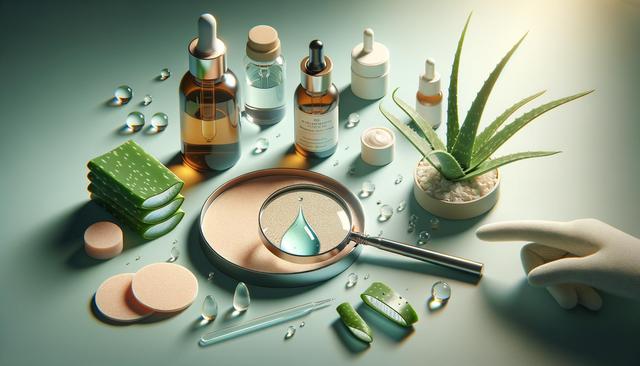Understanding the Role of Serums in Skincare
Serums have become a cornerstone of modern skincare routines, praised for their concentrated formulations and targeted benefits. Unlike traditional creams or lotions, serums contain smaller molecules that penetrate the skin more deeply, delivering active ingredients directly to the layers where they are most effective. Dermatologist-approved serums are especially formulated with clinically validated ingredients that address a wide range of skin concerns, from fine lines to uneven tone. These products are tested to ensure they are not only effective but also safe for regular use on sensitive skin types.
What makes serums particularly valuable is their ability to support the skin’s natural renewal process. As we age, the production of collagen and elastin slows down, leading to visible signs of aging such as wrinkles and sagging. Serums can help counteract these effects by delivering potent ingredients that boost hydration, increase cell turnover, and stimulate collagen production. Incorporating a well-formulated serum into your skincare routine is a proactive step toward maintaining a youthful appearance over time.
Key Ingredients to Look For
Dermatologist-approved serums are often packed with a variety of powerful ingredients known for their skin-enhancing properties. Choosing the right formula depends on your skin type and specific concerns, but some ingredients stand out for their proven effectiveness in rejuvenating the skin.
Look for serums that contain:
- Hyaluronic acid – deeply hydrates and helps plump the skin
- Vitamin C – brightens skin tone and protects against environmental damage
- Retinol – encourages cell turnover and reduces the appearance of fine lines
- Peptides – support collagen production and improve skin firmness
- Niacinamide – helps with uneven skin tone and strengthens the skin barrier
Each of these ingredients plays a unique role in promoting youthful skin. When used consistently, they can visibly improve texture, tone, and elasticity. Dermatologist-formulated serums often combine several of these components to maximize benefits while minimizing irritation.
How to Incorporate Serums into Your Routine
Adding a serum to your skincare routine doesn’t require an overhaul—just a few thoughtful adjustments. The ideal time to apply a serum is after cleansing and before moisturizing, allowing it to be fully absorbed into the skin. Most serums are designed to be used once or twice daily, depending on the formulation and your skin’s tolerance.
Here’s a simple guide for integrating a serum into your daily regimen:
- Cleanse your face with a gentle cleanser
- Pat your skin dry, leaving it slightly damp
- Apply a few drops of serum and gently press it into the skin
- Follow up with a moisturizer to lock in hydration
- Apply sunscreen in the morning to protect your skin
Consistency is key. Results from serums typically become noticeable after several weeks of regular use. Be patient and give your skin time to respond to the active ingredients. If irritation occurs, consider alternating days or consulting a dermatologist for guidance.
Choosing the Right Serum for Your Skin Type
Not all serums are created equal, and selecting a dermatologist-approved formula tailored to your specific skin type can make a significant difference. For oily or acne-prone skin, consider lightweight, non-comedogenic serums with ingredients like niacinamide or salicylic acid. Those with dry or mature skin may benefit from richer serums containing peptides and hyaluronic acid for extra hydration and support.
Skin sensitivity is another factor to consider. If your skin reacts easily, opt for fragrance-free, hypoallergenic serums that focus on soothing and strengthening the skin barrier. Look for labels that mention dermatologist testing or clinical formulation, which often indicates a product has been evaluated for both safety and efficacy.
When in doubt, a professional consultation can help identify your skin’s needs and recommend suitable products. Many dermatologists also offer in-office treatments that complement at-home serum use, creating a comprehensive approach to skin rejuvenation.
Long-Term Benefits and Realistic Expectations
While serums are a powerful addition to any skincare routine, it’s important to maintain realistic expectations. Dermatologist-approved serums are formulated to support long-term skin health, not to deliver overnight transformations. With regular use, these products can help maintain a smoother, firmer, and more radiant complexion, but results will vary depending on individual skin conditions and lifestyle factors.
Long-term benefits include:
- Improved skin texture and tone
- Reduction in visible signs of aging
- Enhanced hydration and skin elasticity
- Protection against environmental damage
To maximize the benefits of your serum, pair it with healthy lifestyle habits such as staying hydrated, eating a balanced diet, getting adequate sleep, and protecting your skin from sun exposure. Skincare is most effective when it’s part of a holistic approach to wellness.
Conclusion: Investing in Your Skin’s Future
Dermatologist-approved serums offer a practical and effective way to support youthful, healthy-looking skin. By targeting specific concerns with potent, clinically evaluated ingredients, these serums can play a vital role in your long-term skincare strategy. Whether you are dealing with early signs of aging or simply want to maintain your skin’s natural glow, incorporating a suitable serum into your daily routine is a step worth taking. Remember, the key is consistency, patience, and choosing formulations that align with your unique skin needs. With the right approach, you can build a skincare routine that not only enhances your appearance but also contributes to your overall confidence and well-being.


